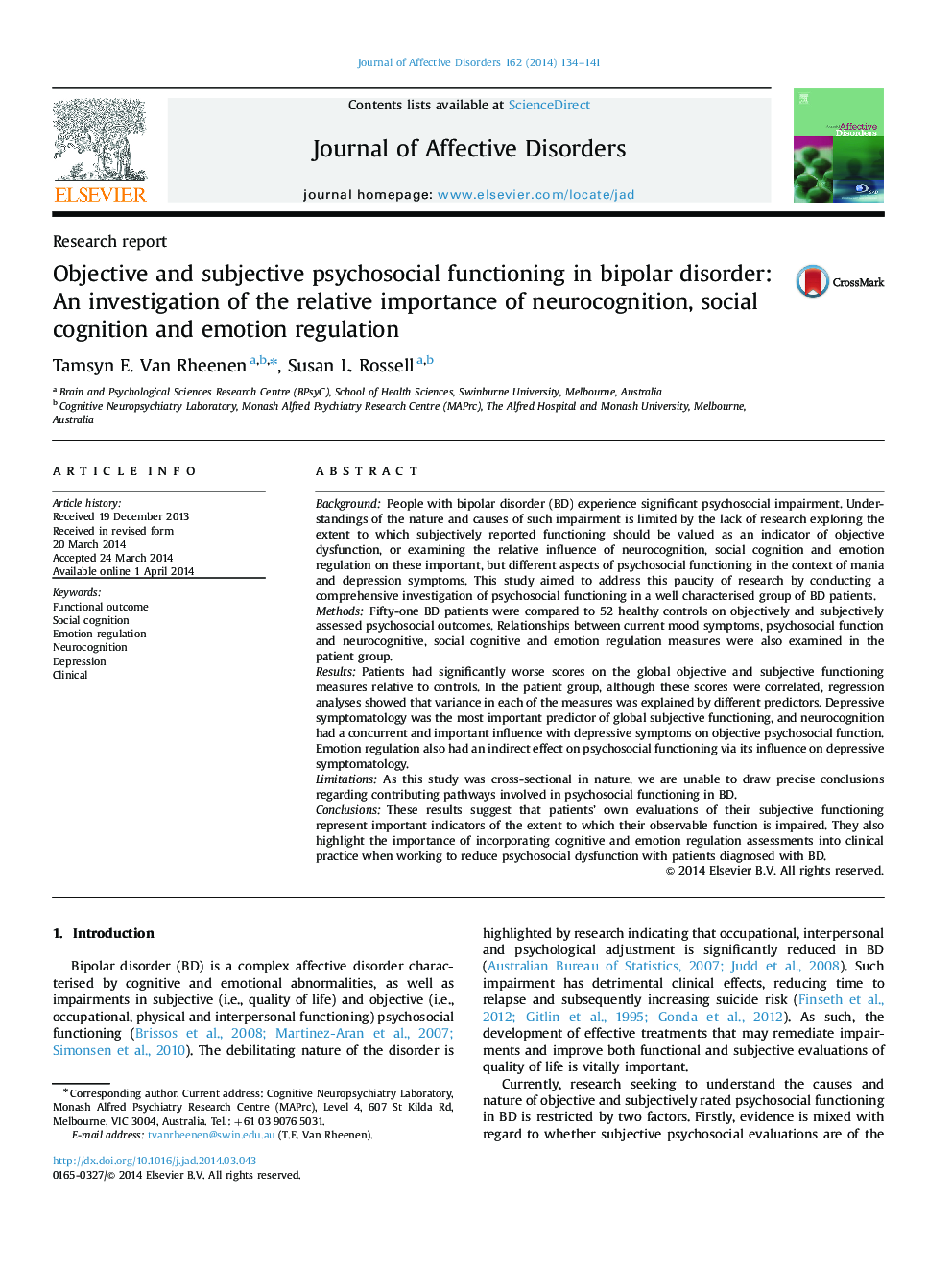| کد مقاله | کد نشریه | سال انتشار | مقاله انگلیسی | نسخه تمام متن |
|---|---|---|---|---|
| 6232997 | 1608163 | 2014 | 8 صفحه PDF | دانلود رایگان |
BackgroundPeople with bipolar disorder (BD) experience significant psychosocial impairment. Understandings of the nature and causes of such impairment is limited by the lack of research exploring the extent to which subjectively reported functioning should be valued as an indicator of objective dysfunction, or examining the relative influence of neurocognition, social cognition and emotion regulation on these important, but different aspects of psychosocial functioning in the context of mania and depression symptoms. This study aimed to address this paucity of research by conducting a comprehensive investigation of psychosocial functioning in a well characterised group of BD patients.MethodsFifty-one BD patients were compared to 52 healthy controls on objectively and subjectively assessed psychosocial outcomes. Relationships between current mood symptoms, psychosocial function and neurocognitive, social cognitive and emotion regulation measures were also examined in the patient group.ResultsPatients had significantly worse scores on the global objective and subjective functioning measures relative to controls. In the patient group, although these scores were correlated, regression analyses showed that variance in each of the measures was explained by different predictors. Depressive symptomatology was the most important predictor of global subjective functioning, and neurocognition had a concurrent and important influence with depressive symptoms on objective psychosocial function. Emotion regulation also had an indirect effect on psychosocial functioning via its influence on depressive symptomatology.LimitationsAs this study was cross-sectional in nature, we are unable to draw precise conclusions regarding contributing pathways involved in psychosocial functioning in BD.ConclusionsThese results suggest that patients' own evaluations of their subjective functioning represent important indicators of the extent to which their observable function is impaired. They also highlight the importance of incorporating cognitive and emotion regulation assessments into clinical practice when working to reduce psychosocial dysfunction with patients diagnosed with BD.
Journal: Journal of Affective Disorders - Volume 162, 20 June 2014, Pages 134-141
